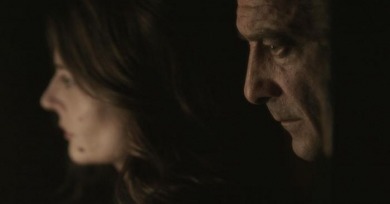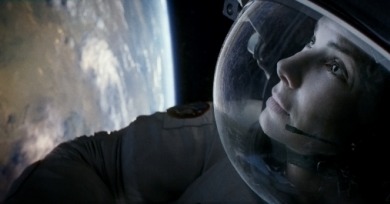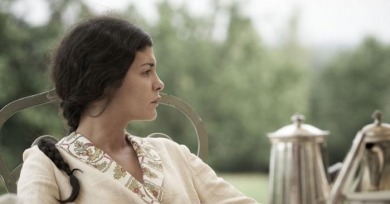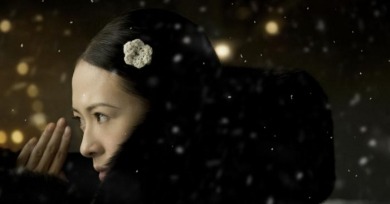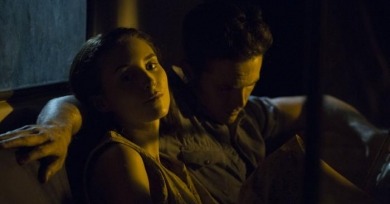Reviews
It’s a disturbing testament to Denis's artistry that the most plangent impression left by Bastards is of its beauty, even as it is ultimately her most horrifying film since the cannibal holocaust that is 2001’s Trouble Every Day.
An efficient, technically audacious hour-and-a-half survival narrative, Gravity demonstrates both a spectacular formal ambition and a single-minded, bordering on simplistic, narrative focus
One of the enduring canards of that devilishly intractable film-critical tick known as auteurism is the notion that a certain filmmaker has obsessions, idiosyncratic (and, ideally, perverse) fascinations that find their way, almost furtively, into their movies.
What is more unforgivable than the dilatory, cynical waste of talent dribbling off the screen in Rush is that some critics appear to have fallen for its superficial charms (period cars! sex! third-degree burns!) and are content to overlook its structural deficiencies, not to mention its fundamental pedestrianism.
It’s not hard to see the film as one extended lip-synch: our protagonist mouthing along to the strains of a past from which he’s long estranged, and an essay-film imitating a noir.
Passion thrillingly, and humorously, recontextualizes De Palma’s regard for trash by reveling instead in a new kind of junk, the stuff of high-end consumerism.
The dreaded word “middlebrow” will inevitably buzz like a neon sign in most readers’ heads, and perhaps justifiably so, were it not for the fact that the French actually do this sort of thing rather well.
The first half of The Grandmaster is set in a period that’s new to Wong’s cinema: China before the revolution. (I am excepting the setting of Ashes, more mythic than historical.) This is not the decadent, Westernized jazz age Republic, but a world steeped in centuries-old continuities, a 1936 where the imperial past is still not really past.
Santiago Mitre’s The Student, from Argentina, suggests that student and national politics can be strange Machiavellian bedfellows.
Old Cats is crammed with the stuff of life—not just the roiling emotions that take up space in its characters’ heads, like regret, anger, neuroses, and occasional joy, but also the literal things that pile up in their houses: books, computers, medicines, and, most of all, tchotchkes.
Young filmmakers and critics alike speak of the American seventies cinema with a grandiose nostalgia, as though everywhere one turned there was another masterpiece just waiting to be picked, like a fresh-cheeked apple from an endless orchard.
Like his celebrated 2000 debut, George Washington, Avalanche is slow and sparse, padded with meandering negative space.
Certainly The Canyons didn’t have a private life at any stage of its production, nor have two of its stars had one, in any traditional sense of the word, at any point in their adult lives.
When Allen has dared to venture into darker psychological portraiture (a.k.a, when he’s “gone serious” in films like Interiors and September), he’s risked displeasing viewers who’d rather cozy to the relatably anxious than the genuinely depressed or dysfunctional.
